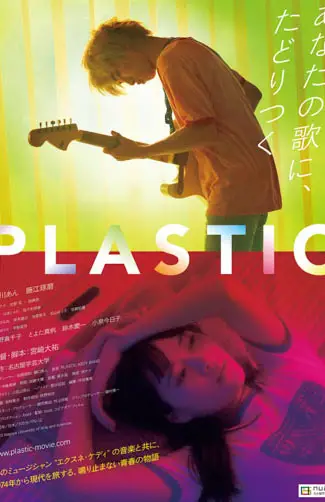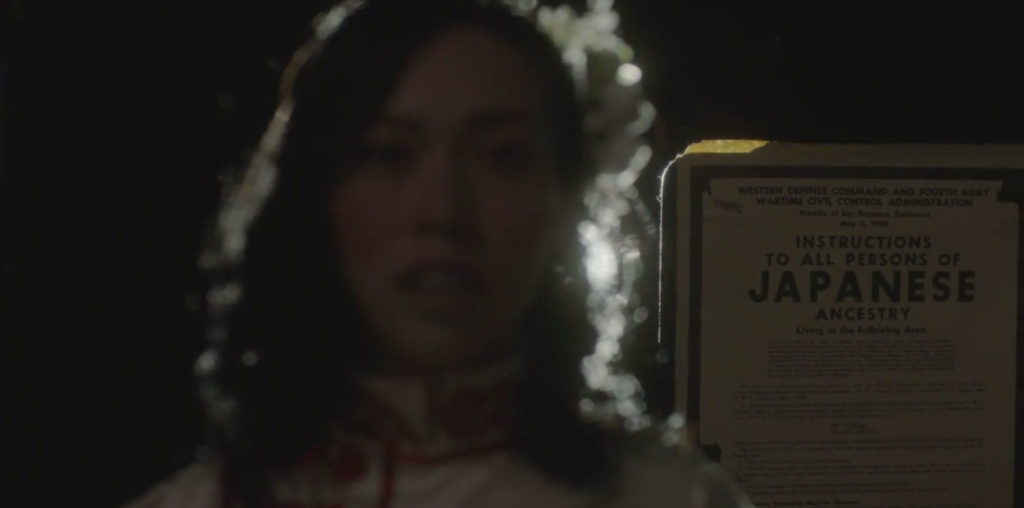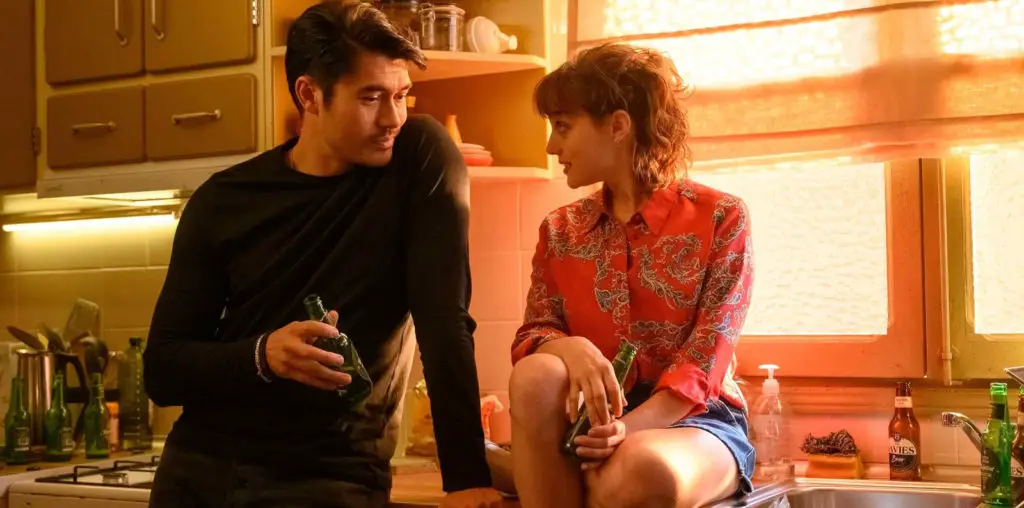
Daisuke Miyazaki’s Plastic follows two teenagers over the course of four years. 2018 was a year of optimism. Ibuki (An Ogawa), a teenager with an old soul, is obsessed with the psychedelic rock band Exne Kedy and the Poltergeists, whose cosmic mystique piques Ibuki’s curiosity. Exne Kedy had its last concert in 1974, the same year the U.S. military sent a message to space. One day, while riding her bike home from school, she hears a musician named Jun (Takuma Fujie) busking on the sidewalk. But what catches her notice is the song he’s playing: it is the same Exne Kedy tune she’s listening to at that very moment. Jun is new to Nagoya, moving here after he was kicked out of his band due to a shady record deal. He bonds with her over their love of Exne Kedy, and soon romance blossoms. Ibuki is initially supportive of Jun’s aspiration to become a successful recording artist.
In 2019, a rift occurs. Ibuki is getting serious about college and seeking independence, but Jun desperately wants to balance his work life with his music career. He is dropping out of school due to his strong desire to be a musician. Ultimately, they decide to break up.
2020-21 is a time when Jun and Ibuki are figuring out adulthood on their terms. In Tokyo, Ibuki is taking college classes and sharing an apartment with her boyfriend. Jun’s music aspirations are put on hold, and a friend convinces him to join his venture business. The aspiring musician also begins to fall for one of Ibuki’s friends. Even though a regular job means pay, Jun is still unhappy as it takes away from his music. His girlfriend wants him to stay present and not be stuck on Exne Kedy. In 2022, Exne Kedy and the Poltergeists announce a reunion concert. Jun starts to get back into music, while Ibuki is single again and looking for a fresh start. Will Jun and Ibuki reunite?
“…Ibuki is getting serious about college and seeking independence, but Jun desperately wants to balance his work life with his music career.”
Plastic is a realistic musical that mirrors the story structure of The Umbrellas of Cherbourg and shares the melancholic tone of Once. The strongest elements come from the funky score, courtesy of Plastic Kedy. They are the real-life band fictionalized in the film. Their music is diegetically integrated to express Jun and Ibuki’s personal struggles. It also suits the loose storyline. For those who appreciate 1970s rock, Plastic Kedy’s music is worth a listen.
Ogawa and Fujie’s performances capture the quiet and moody nature of their generation. Miyazaki’s take on the bittersweet young lovers makes the narrative relatable for a socially disconnected generation that is overly obsessed with retro media. The filmmaker succeeds in capturing the challenges of finding love when social media is so prominent.
Plastic is worth watching to gain a deeper and more introspective understanding of today’s generation. The performances are strong, and the quiet realism of the story makes an impact. Plastic Kedy’s music is excellent and fits the tone and themes of the film perfectly.

"…worth watching to gain a deeper and more introspective understanding of today's generation."


